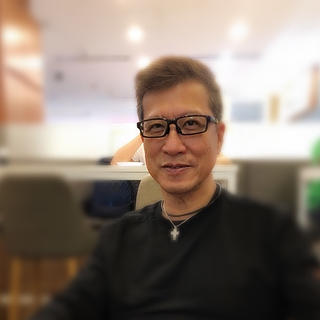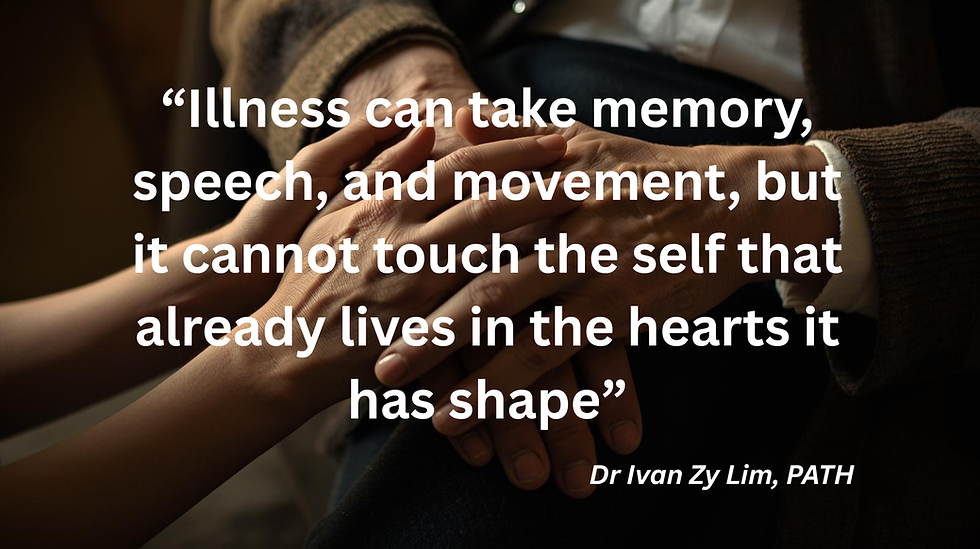Beyond Automation: Rethinking Human Worth in the Age of AI through PATH
- Ivan Lim
- Aug 20, 2025
- 4 min read

By Dr. Ivan Zy Lim, Clinical Psychologist & PATH Trauma Consultant,
Doctor of Psychology, MSocSc, Founder of Psychotherapy Anchored in Transcultural Harmony (PATH)
Abstract
As artificial intelligence (AI) rapidly transforms the global labor landscape, new questions emerge, not only about employment, but about identity, value, and emotional survival. Drawing on Bill Gates’ assertion that only empathy-based, highly technical, or creative roles may withstand automation, this article offers a transcultural psychological response. Through the PATH framework, rooted in Confucian, Daoist, and Buddhist thought, this paper proposes a model of human worth that transcends task-based identity. It explores the psychological impact of AI-driven disruption and offers a roadmap for resilience that centers relational integrity, adaptive flow, and existential awakening.
Introduction: When Work Fades, What Remains?
In a widely circulated statement, Bill Gates recently identified three domains of work that may endure in the face of AI:
Healthcare, because of the need for empathy and human presence.
Engineering and AI development, because systems still require builders.
Creative arts, because imagination and originality resist replication.
His caution has sparked global conversations about employment. But beneath the economic implications lies a deeper existential reckoning: If machines can outperform us in most tasks, what is left of the human self?
This paper explores that question through the lens of PATH, Psychotherapy Anchored in Transcultural Harmony, a therapeutic and philosophical framework that integrates Eastern wisdom (Confucianism, Daoism, and Buddhism) with Western psychology.
I. The Psychological Impact of AI: A Hidden Crisis
While economists debate policy shifts, clinicians are already witnessing the inner impact. AI doesn’t just threaten jobs, it destabilizes identities. In contemporary capitalist societies, to work is to be. For many, self-worth is fused with function.
When AI surpasses human capability, psychological consequences include:-
Loss of identity: Who am I if I am no longer needed?
Shame and inferiority: Machines don’t sleep or err, what does that make us?
Anxiety about reinvention: How many times must one redefine a career in a single lifetime?
Grief over a future lost: Degrees, training, mastery; rendered irrelevant overnight.
In therapy rooms and career coaching sessions, these themes now echo with urgency. What’s needed is not just upskilling, but a reanchoring of human worth.
II. The PATH Framework: Transcultural Anchors for a Disrupted World
PATH offers a transcultural counterbalance. In contrast to Western task-centric self-concepts, Eastern philosophical traditions emphasize relational, adaptive, and spiritual identities. PATH invites us to return to three enduring human ways of being:
1. The Confucian: The Ethical Relational Self
In Confucianism, personhood is relational, not individualistic. One’s identity is not defined by job title, but by role-ethics: how one embodies integrity, care, and responsibility in relation to others.
In PATH, this suggests that even when work changes, our ethical role-presence can remain intact and deeply needed.
2. The Daoist: The Adaptive, Flowing Self
Daoism reminds us: the only constant is change. To cling is to suffer; to adapt is to live in harmony with the Dao - the Way.
In PATH, clients are supported to relinquish perfectionistic attachment to roles and rediscover vitality in the present, including through embodied practices like qigong, nature immersion, or poetic reflection.
3. The Buddhist: The Awakening, Compassionate Self
Buddhism frames life as impermanent, and the self as interdependent and ever-changing. Work, like all things, will end. But that is not cause for despair. It is an invitation:-
In PATH, therapy includes meditation, silence, and existential reflection, not to numb the pain of transition, but to allow it to reveal deeper truths.
III. Reframing Gates’ “Safe Jobs” as Human Archetypes
Gates’ three protected domains, healthcare, engineering, and the arts, can be reinterpreted not merely as industries, but as archetypal callings:
Industry (Gates) | Human Archetype | Psychological Function |
Healthcare | The Healer | Empathic presence; emotional containment |
Engineering | The Builder | Structure, problem-solving, systemic vision |
Creative Arts | The Creator | Expression, meaning-making, soul language |
IV. Reflection as Resilience: A PATH-Based Inner Exercise
In a society where identity is increasingly unstable, reflection becomes survival. Below are four PATH-based questions to guide self-recalibration:
Confucian: What relationships or roles call forth my best ethical self, even beyond a job title?
Daoist: What am I resisting that might actually be a doorway into growth or renewal
Buddhist: What suffering am I clinging to, and what deeper insight is it trying to show me?
Integrated PATH: Who am I becoming, not in terms of my LinkedIn profile, but in how I live, relate, and respond?





Comments